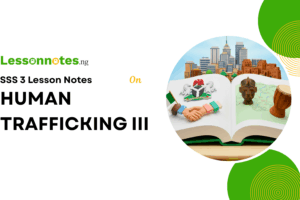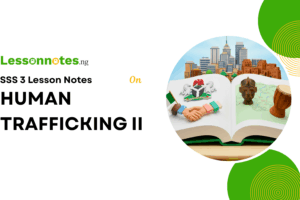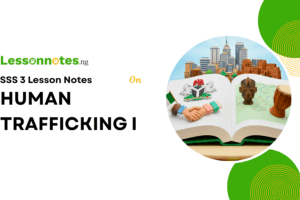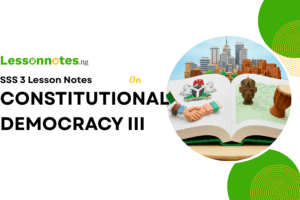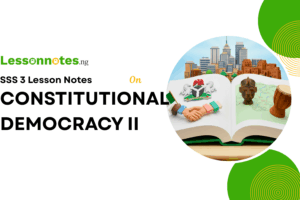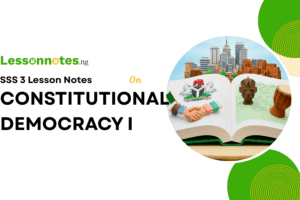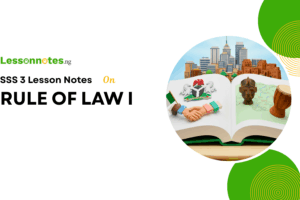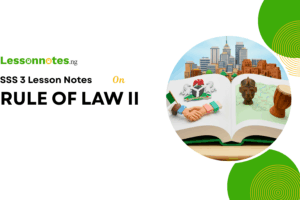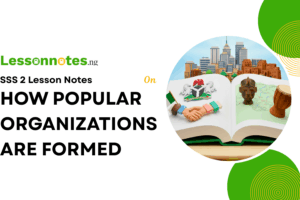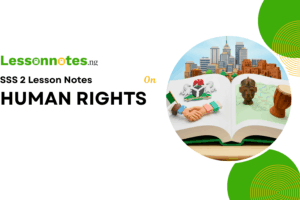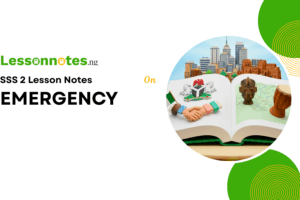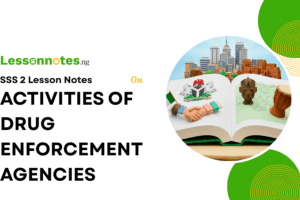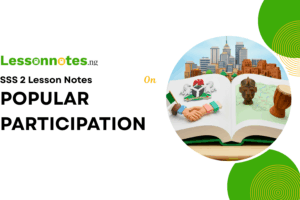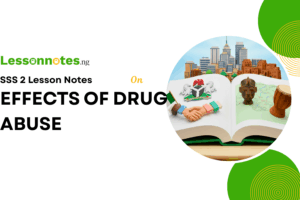Representative Democracy SS1 Civic Education Lesson Note
Download Lesson NoteTopic: Representative Democracy
INTRODUCTION
The word democracy is derived from the Greek words “demos” meaning people and “kratia” which means authority or rule. Therefore, democracy may be said to be the rule or authority of the people. However, the widely used definition of the term democracy was propounded by a former President of the United States of America, Abraham Lincoln saying, “Government of the people, by the people, for the people”. It is the type of government where all adult citizens have an equal say in the decisions that affect their lives.
Democracy is a form of government where the people have and exercise the supreme power directly or indirectly through a system of representation usually involving free and fair elections held at specific dates by the electoral body in the country.
TYPES OF DEMOCRACY
There are two types of democracy. These are:
- Direct Democracy
- Indirect Democracy or Representative Democracy
Direct democracy
Direct democracy places all power in the hands of the individual. When political decisions must be made, all members of a polity gather together and individuals cast a vote. In theory, this sounds like the ideal form of government. There are no intermediaries. Each person is treated as an equal, and each person is given a chance to directly influence the policymaking process.
Indirect/representative democracy
Representative democracy is a form of government whereby eligible citizens elect their leaders through periodic elections to represent them at all levels meant for a fixed tenure.
This is a political arrangement that establishes an intermediary political actor between the individual and the policy outputs of the state. In other words, representative democracy is a process in which the people through election elect those who will represent or govern the state on their behalf for a fixed period. Through the electoral process, one person or a group of people are elected and assigned the task of making decisions on behalf of the group of citizens that they represent.
In Nigeria, we have multiple intermediaries. Each state has three representatives in the upper house or Senate. In the lower house or House of Representatives, each of the states has 10 representatives. It is important to note that while the power of the individual is diminished slightly, political representatives are still beholden to the group that they represent, also known as their “constituency”.
FEATURES OF REPRESENTATIVE DEMOCRACY
- Respect for Minority rights
- The supremacy of the constitution
- Existence of fundamental human rights
- Periodic election
- Free and fair election
- Existence of political parties
- Majority rule/Popular sovereignty
- Party system
- Presence of opposition
- Separation of powers between the arms and levels of government
- Freedom of association and groups
- Equal political rights
- Universal Adult Suffrage
- Citizenship participation
- Up-to-date electoral register
- Political Awareness/ Political Education
- Independent Electoral body
- Independence of the judiciary
- Rule of law
- Free Press/Mass media
Reasons for the Adoption of Representative Democracy in Nigeria
- Large electorate size due to high population.
- Complex state structure of the Nigerian government.
- Large territorial size of the country.
- Greater political participation.
- The complexity of many political issues.
- Desire to protect the interest of the minorities/ethnic diversities.
- Safeguarding the fundamental human rights of the citizens.
- Promotion of accountability.
- To give voice to the opposition for good governance.
- To conform to the international trend in modern governance/popularity of democracy.
- Expanding the scope of modern government for the welfare of citizens.
- To maintain international relations with other democratic countries.
- To ensure stability and peaceful transition of government.
ADVANTAGES/MERITS OF DEMOCRACY
- Democracy promotes the rule of law and constitutionalism.
- It facilitates the effective participation of citizens in governance.
- It encourages checks and balances resulting from the separation of powers which enhances cooperation, collaboration and partnership in governance.
- Democracy guarantees periodic elections to ensure a smooth transition of government.
- It promotes a political culture which makes the people favourably dispose towards nation-building.
- It allows constructive criticism of government policies which checks abuse of power thereby promoting good governance and national development.
- Democracy promotes transparency and accountability.
- It encourages loyalty to the state since the people/citizens see themselves as part of the democratic process.
- The people have freedom of choice in the election of those who will represent them in government.
- It brings about legitimacy, that is legal and constitutional powers conferred on the leader.
- It ensures equity, justice and fair play.
DEMERITS OF DEMOCRACY
- An elected representative at times forgets their people when in a position of power and authority.
- The interests of the masses are sometimes forgotten.
- It gives the fate of the masses to only a few people.
- Minorities at times never have a say in the polity and matters that affect them since only a few elected people make decisions.
- It is too expensive to run.
- It is characterized by selfish interest.
- Representative democracy is prone to corruption.
- Duplication of functions
- The rigging of an election.
- Illiteracy
Factors That Retard The Growth Of Democracy In Nigeria
- Electoral Malpractices
- Lack of proper political education
- High level of illiteracy/ignorance
- The high cost of running a democracy
- Bribery and corruption
- Elections based on sentiments/ethnicity/tribalism/religion
- Sit-tight syndrome/tenure elongation
- Lack of respect for a popular will by politicians
- Biased electoral umpire
- Military intervention in politics
- Political apathy
- Monetization of politics
- Lack of internal democracy among political parties
- Dictatorial influence of political godfathers/party leaders
- The proliferation of political parties
- Inadequate democratic political culture
- Bad governance/unfulfilled electoral promises
- Militancy/Political thuggery/violence Poverty
- Erosion of judicial independence


